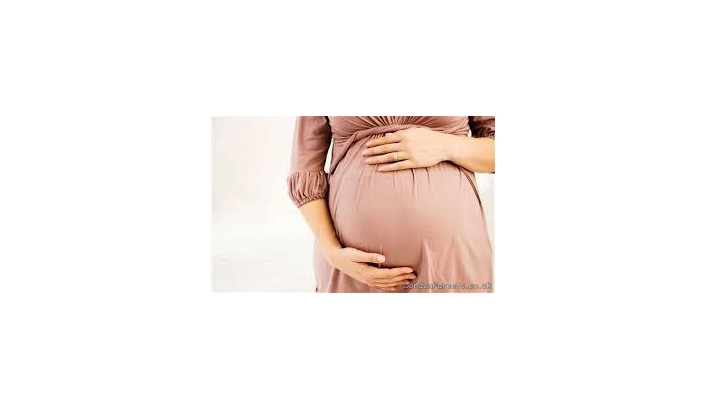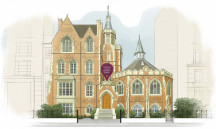-
20 July
-
04 November
-
10 July
-
12 June
-
05 June
-
24 September
-
19 September
-
10 May
-
26 April
 The vast majority of us will end
up giving birth on the NHS. Even so, there are still choices to be made
about the kind of birth you would like. Most NHS maternity units now
incorporate a birth centre providing a low tech birth experience for
women with uncomplicated labours. You’re entitled to choose a home birth
within the NHS, and in many cases, particularly after a previous birth
has had complications, you can opt for an elective caesarean.
The vast majority of us will end
up giving birth on the NHS. Even so, there are still choices to be made
about the kind of birth you would like. Most NHS maternity units now
incorporate a birth centre providing a low tech birth experience for
women with uncomplicated labours. You’re entitled to choose a home birth
within the NHS, and in many cases, particularly after a previous birth
has had complications, you can opt for an elective caesarean.
Even going private doesn’t necessarily mean having to remortgage the
house. There are options, for example hiring an independent midwife or a
doula, or simply paying for a single room after the birth, that can
give you a little bit of extra control without stretching all the way to
a private hospital.
So, before you book yourself into the local labour ward, it might be
worth spending a little bit of time examining all your options.
Although, there is definitely something to be said for proximity –
particularly when your waters have broken and your contractions are
coming every three minutes.
NHS Hospitals
The advantage of going to a large hospital to give birth is that it will
cater for pretty much every eventuality. Epidurals and other pain
relief will be available if you need them, as will a caesarean.
Specialist doctors will be there to monitor your progress, and there
will be facilities for looking after you and your baby if there are any
complications after the birth.
Most local hospitals now also have a midwife-led unit. In these units
the care is provided entirely by midwives. The aim is to provide a more
relaxed environment to encourage natural births with as little
intervention as possible. An NHS midwife-led unit will generally have at
least one birth pool, though it is not usually possible to guarantee
that it will be available when you need it. If there are complications
during the birth then you will be transferred into the care of a
consultant on the labour ward.
Be aware, though, that the bigger
and better equipped the hospital, the more complicated births, requiring
medical intervention, will be transferred to their unit.
There is a midwife shortage in the UK, and NHS hospitals can often be
short staffed and forced to rely on agency workers, particularly at
night. Anecdotal evidence suggests that in general most mothers are
happy with the standard of care that they receive on the NHS during the
birth itself, but that post natal care can be haphazard.
Although partners are actively encouraged to be involved in the birth
process there are not usually facilities for them to stay overnight at
an NHS hospital after the birth, and if you want to have a single room
afterwards then you will usually have to pay for it (around £100-£200
per night). As with birth pools, hospitals can’t guarantee that a single
room with be available when you request one.
The best thing to do is to go on a tour of the maternity unit and ask
the staff there about the things that are most important to you. Your
antenatal midwife should be able to give you details of the times of
hospital tours, or you can call the hospital’s main switchboard and ask
to speak to the antenatal department. Even if you have already booked
yourself in to a particular hospital you can change your mind at any
time during your pregnancy.
Private Hospitals
Bank balance permitting, a private maternity hospital or birth centre
could provide you with more control over your birth experience, and a
more comfortable stay.
You will choose your own obstetrician, and whether you want to book a
caesarean for a particular day, or ensure that there will be a birthing
pool in your room, you can be confident that your needs will be accommodated. Going private will also guarantee you a single en suite room for as long as you need it.
Exactly how much you’ll have to pay depends on which services you need, a
caesarean is more expensive than a natural birth and a consultant-led
birth will cost more than a midwife-led one.
As a rough guide, once you have paid the hospital for the use of their
facilities, and settled the bill from your private consultant
obstetrician, you’ll be lucky to walk away with much change from
£10,000.
Home Birth
Giving birth at home could be the ultimate solution for the pregnant
woman hoping for a natural birth. Your own home is the place that is
most familiar to you and where you are least likely to feel under
stress. You won’t have to make a hasty trip to hospital, you can arrange
food and entertainment to suit yourself and you don’t need to worry
about privacy or whether you’ve got an en suite bathroom.
If there are complications during the birth and you need medical help
then you’ll have to go further to get it, though research has shown that
medical intervention is less likely to be needed if a woman is
labouring at home. If there have been no complications so far in your
pregnancy then you should be able to book a home birth through your
local hospital and a midwife will be sent out to you when you are in
labour. If you are having difficulty booking a home birth through the
NHS, or if you would like to select your own midwife who will take time
to get to know you and your family before the birth, then you may want
to consider an independent midwife.
Independent midwives are fully qualified midwives who have chosen to
work outside the NHS. Most of them specialise in home birth, and some
are experts in specific areas such as breech or twin births. They will
usually provide antenatal care in your home, as well as attending the
birth and visiting for up to a month afterwards. They can refer you for
scans and other antenatal tests, in your local NHS hospital. They can
also refer you to an NHS obstetrician if necessary.
Doulas
The role of a doula is in offering emotional and practical support to
women - ‘mothering the mother’. In many cultures women are encouraged to
rest for forty days after giving birth; here we’re usually expected to
get back to normal a bit more quickly. Hiring a doula can provide much
needed after care and practical help, allowing the mother to have as
stress-free a birth experience as possible, and spend the maximum amount
of time bonding with her baby.
Doulas can offer assistance and encouragement during pregnancy, during
the birth itself (although they are not clinically trained, and will not
replace a midwife) and can help out at home in the first weeks after
the birth. Some doulas specialise in either pre or post birth services
and some offer both.
What will it cost?
NHS Free!
Postnatal doula £10-£15/hour
Birth doula £200-600
Independent midwife £2,000-£4,000
Private birth centre £4,000-£5,000
Private hospital £5,000-£10,000
Source: https://www.babylondon.co.uk/articles/pregnancy-a-birth/pregnancy/item/231-your-birth-your-choice
Related articles
- Odyssey will open its first UK campus in Marylebone, London, April 2025 - - The award-winning global preschool for children 0-5 ...
Read moreEPIC GLOBAL PRESCHOOL, ODYSSEY, COMING T...
Londonnews554XXXAn award-winning preschool offering from Asia is to open its first campus in London, bringing a new global ‘limitless learning’...
Read moreParenting is no easy task, and for Jordan and Briana Driskell, raising their quintuplets—Zoey, Dakota, Hollyn, Asher, and Gavin&mdash...
Read more0 comments
No messages yet




